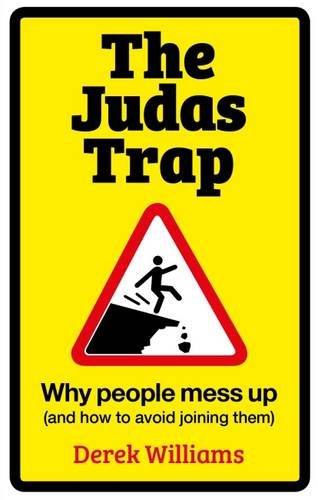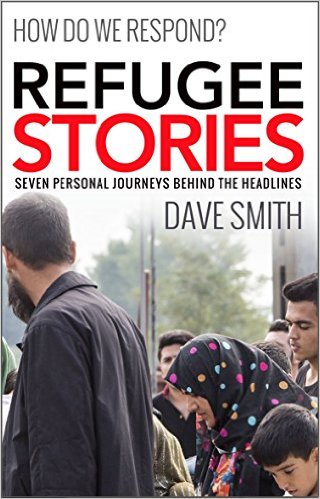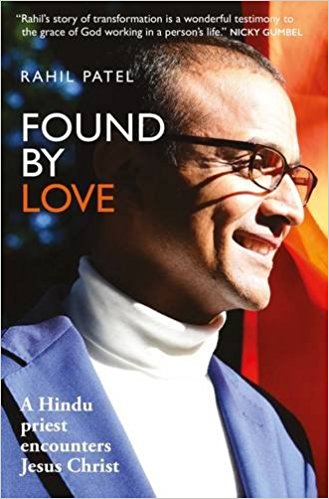A call to radical discipleship.
In part two of a series examining the relevance of the message and ministry of the non-writing prophets for today, Wilfred Wong looks at the lessons which can be learned from the life of Elisha.
The ministry of Elisha was complementary to that of Elijah. Elijah's name means ‘God is Yahweh’ while the name Elisha means ‘God is Salvation’. Elisha was an evangelist whereas Elijah, like Moses, had to restore and vindicate the dignity of the law which was, at the time, neglected and despised. Elisha led back to God those who had been aroused from their complacency by the ministry of Elijah.
The role of both Elijah and Elisha are crucial for today's church to encompass, in presenting to the world the message of who God is (Elijah) and that God saves (Elisha).
They both prophesied to Israel at a time of widespread religious confusion and disobedience to God. This was fuelled by relativism and syncretism, a mix of false teaching and divine revelation, similar to the times that we now live in. At that time in Israel, remnants of God's teachings existed side by side with the idols Baal and Asherah of the Canaanite religion. The king of Israel and the people were confused as to who the true God was.
Similarly, today, this nation has been flooded with more religions and occultic belief systems than at any other time in its history. Under the guise of 'tolerance’ and 'progressiveness’, even church leaders have professed their own subjective and unsubstantiated opinions about God rather than what he has revealed in Scripture.
Today in the West, many people have adopted a consumerist attitude towards religion, including Christians. Some Christians like to pick and choose those aspects of God's character which they are happy to accept. God's love is emphasised and his anger ignored. Many convince themselves that surely God will not mind if they continue to be disobedient. God has been neatly packaged for our convenience and placed in our back pockets. These mistakes are nothing new; they were committed as long ago as the time of Elisha. For all our ’modernity’ and 'progressiveness’, we appear to have come full circle and are no more spiritually enlightened than the people of old.
Elijah and Elisha both prophesied to Israel at a time of widespread religious confusion and disobedience to God.
This spiritual depravity is also reflected in the senseless violence that is on the rise in British society, where even little children are brutally murdered for sexual gratification and about eight million unborn children have been killed since the introduction of the 1967 Abortion Act.1 The latter is perhaps comparable to the human sacrifices conducted in the Canaanite religion.
God’s Righteous Anger
God's anger is clearly demonstrated after Elisha is mocked (2 Kings 2:23-25). This passage is often cited as a major moral problem in the Old Testament. However, the mocking of Elisha, as God's representative, was tantamount to mocking God himself and such blasphemy was punished according to the Deuteronomic doctrine of retributive justice (Deut 7:10, 18:19).
Furthermore, Elisha himself could not have brought about the punishment of the youths. There is no need for Christians to try and make excuses for God's anger in these verses, for though God is love, he is also a God of righteous anger and he has no need to justify his acts to those whom he has created. This anger is demonstrated at many points in Scripture, for instance in the punishment of Ananias and Sapphira for lying to God (Acts 5:1-11).
Although God is merciful and forgiving, he wants us both to love and fear him - the reason for the latter being that fear of God will help to keep us from sinning (Ex 20:18-20, Luke 12:45). Many people, including Christians, lack an awareness of sin and its consequences because much of the Church has shied away from teaching about God's righteous anger. Sin is an unpopular subject nowadays. Perhaps it may only be a matter of time before God's anger results in a terrible chastisement upon this nation and on the whole world, for its blatant disregard for his laws.
For Those Who Will Obey
Though Elisha is to proclaim that God saves, this salvation is only for those who humble themselves and are obedient to God. As is demonstrated above, those who dare to mock God are made to account for their actions (see also Gal 6:7). There are numerous miracles performed by Elisha, which demonstrate God’s saving power for those who are obedient to him: in 2 Kings 4:1-7, Elisha saves a widow in debt from having her two boys taken away as slaves. 2 Kings 4:38-41 describes God’s power to make safe that which is harmful, when Elisha makes a deadly stew edible.
Although God is merciful and forgiving, he wants us both to love and fear him – for the fear of God will help to keep us from sinning.
God also shows his care and provision for those who follow him. In 2 Kings 4:42-44 Elisha feeds a multitude of people with only a small number of loaves demonstrating, yet again, the Lord's care for the needs of his people. In the healing of Naaman, in 2 Kings 5:1-27, Elisha demonstrates God's mercy on those who are willing to humble themselves before him, seek God’s will and faithfully obey him (here we have a story of the conversion and healing of a non-Israelite leper).
We also see God’s severe punishment upon those who are unfaithful in their service to him. Naaman, in gratitude for his healing, offers Elisha a gift, which he refuses (vs 15, 16). However, Elisha’s servant, Gehazi, deceives Naaman into giving him the gifts and he and his descendants are struck down with leprosy.
Storing Up Treasures in Heaven
Gehazi was supposed to be serving God through his service to God’s chosen prophet, Elisha, yet he failed miserably when tempted by riches. This is a lesson for all of us who are engaged in Christian service. It is very common today to hear reports of Christians whose ministries are corrupted by sex, pride or money or any combination of these factors. All of us who serve God need regularly to examine our motives and attitudes and ask ourselves whether we are storing up treasures in heaven or on earth (Matt 6:19-21).
Will we follow the way of Elisha or Gehazi? Until the day we leave this world, we can never be too sure. This is a humbling thought and we need always to seek God’s help in remaining faithful. Although life may sometimes be very difficult, it is only temporary and God will reward believers according to how faithfully and obediently they have served him (Rom 14:12, Rev 22:12, 1 Cor 2:9).
It is quite awesome to realise that the nature of God's eternal reward awaiting us in Heaven will be determined by whatever we do during our temporary stay on earth. If all Christians truly internalised this truth, we would fling aside all those distractions which side-track us from effective Christian service, and focus single-mindedly on serving and pleasing God.
Uncompromising Discipleship
Such is the manner in which Elisha served God. He not only was obedient and faithful, but was willing to give up his livelihood, humble himself and be a servant to Elijah in order to be prepared for his prophetic ministry (1 Kings 19:19-21).
All of us who serve God need regularly to examine our motives and attitudes and ask ourselves whether we are storing up treasures in heaven or on earth.
By the standards which Jesus set, Elisha was a true disciple. When called to serve God, he left everything and did not look back (Luke 9:57-62) and he was not afraid to sacrifice and suffer and even to risk his life, as his ministry was likely to incur the wrath of the authorities (Luke 14:20-27).
True discipleship is always radical, yet we often water down the quality of our service to God, justifying this in the interests of our convenience and comfort. Elisha in his ministry was not only proclaiming God’s salvation but also encouraging the people to obey God. Some parallels can be seen with the Great Commission which Jesus gave to his disciples as recorded in Matthew 28:18-20. They were instructed not only to ‘make disciples’ but stress was also placed on ‘teaching them (i.e. the nations) to obey everything I have commanded you.’
What prophetic role is the Church in this country performing to teach the nation to obey God's commands? Unfortunately, some Christians seem more concerned with their image and not upsetting others than with uncompromisingly proclaiming God’s laws. The wavering stance within parts of the Church on the sinfulness of homosexual practices is just one example of this continuing process of compromise.
Sadly, many parts of the Church are failing to teach God’s commands by word or example. In the West, rather than influencing society, society is influencing the Church. Even sincere and devout Christians often fall into the trap of professing beliefs which are based more on the cultural influences of the day than on God's teachings as found in the Bible.
It is quite awesome to realise that the nature of God's eternal reward awaiting us in Heaven will be determined by what we do during our temporary stay on earth.
More Than We Can Imagine
We are all called to radical discipleship. It is not an easy road and we need God’s assistance and guidance along every step of the way. Like Elisha, we should have lives of deep prayer and seek God's will, in prayer, with an attitude of humility and obedience and through the study of God's word.
When we are humble and obedient instruments of God, he is able to achieve great things through us, perhaps more than we can imagine, as he did through his servant Elisha.
First published in Prophecy Today, Vol 13(5), 1997. Part of a series - click here for back issues.
Notes
1 2015 statistics.


 The Judas Trap: Why people mess up (and how to avoid joining them)
The Judas Trap: Why people mess up (and how to avoid joining them) Refugee Stories: Seven personal stories behind the headlines
Refugee Stories: Seven personal stories behind the headlines Found By Love: A Hindu Priest Encounters Jesus Christ
Found By Love: A Hindu Priest Encounters Jesus Christ